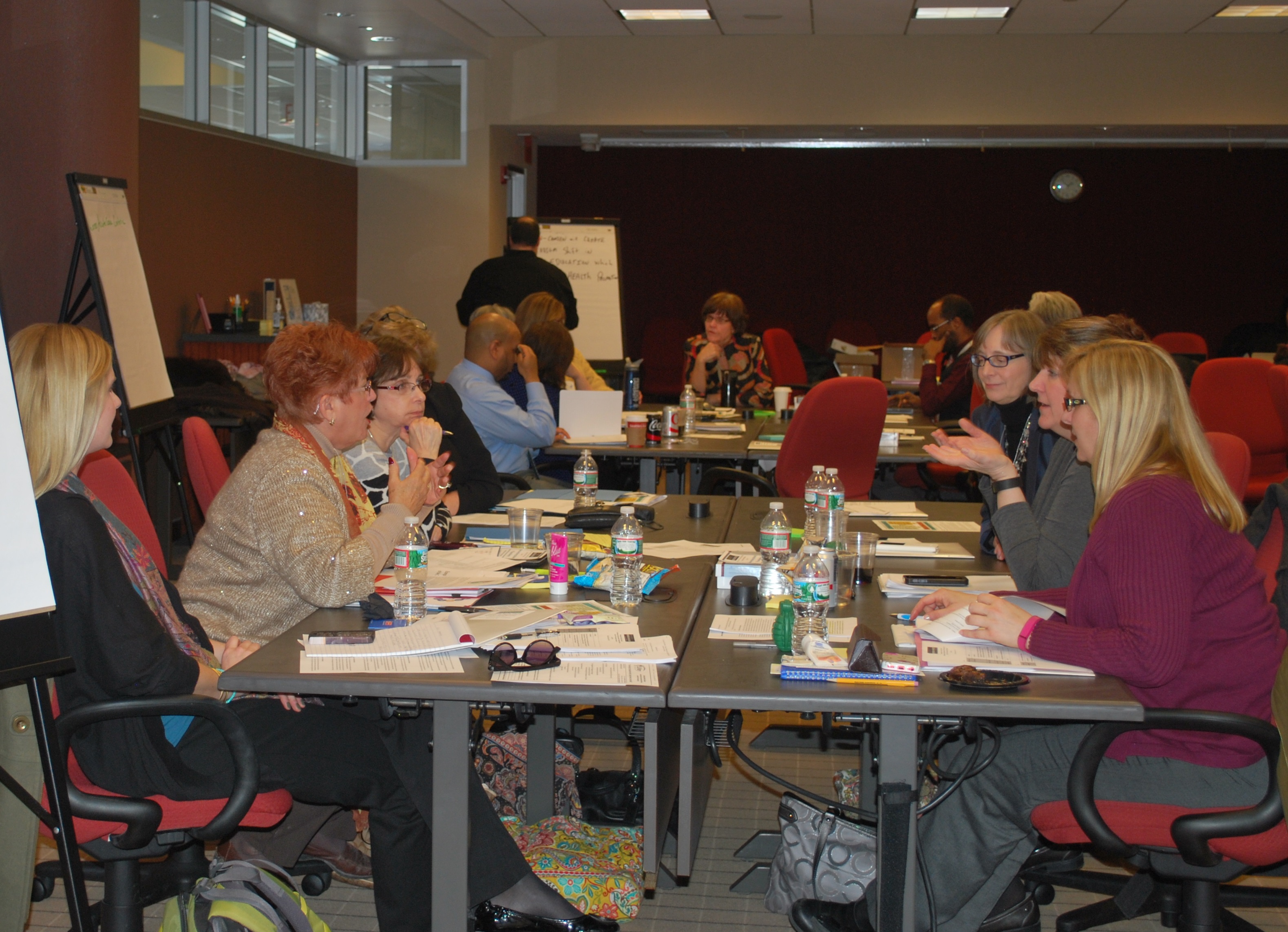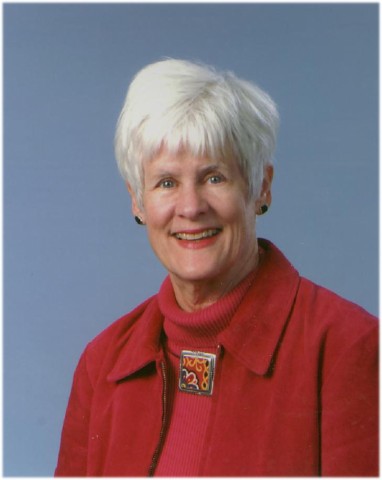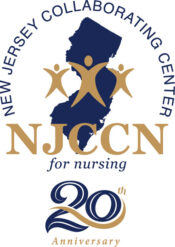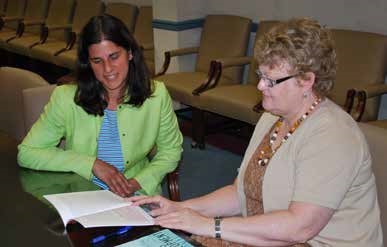Feb 14, 2017 | NJNI in the News, Nursing News
by NJNIs Co-Director Dr. Susan Salmond.
There are transformative changes occurring in healthcare for which nurses, because of their role, their education, and the respect they have earned, are well positioned to contribute to and lead. To be a major player in shaping these changes, nurses must understand the factors driving the change, the mandates for practice change, and the competencies (knowledge, skills, and attitudes) that will be needed for personal and systemwide success. This article discusses the driving factors leading to healthcare transformation and the role of the registered nurse (RN) in leading and being a fully contributing member of the interprofessional team as we shift from episodic, provider-based, fee-for-service care to team-based, patient-centered care across the continuum that provides seamless, affordable, and quality care. This new health paradigm requires the nurse to be a full partner in relentless efforts to achieve the triple aim of an improved patient experience of care (including quality and satisfaction), improved outcomes or health of populations, and a reduction in the per capita cost of healthcare.
Read the full article here:
Oct 14, 2015 | Newsletter Archives
In this Issue:
NJNI Grantees Put New Focus on Population Health in Nursing Curricula
NJNI’s Collaborative Learning Community Director to be Honored as a “Living Legend”
New Jersey Action Coalition Summit for Nurses to Focus on ‘Building a Culture of Health through Innovation’
Nurses On Boards Coalition Seeks Participants
Alumni and Scholars Update
Did You Know…?
NJNI Grantees Put New Focus on Population Health in Nursing Curricula

Nurse educators use funds to prepare students to provide care in our rapidly changing health care system.
Three New Jersey nurse educators are giving nursing education a makeover.
New Jersey nurse faculty members Robert Scoloveno, Cheryl Holly, and Katie Hooven are leading efforts at their schools to redesign nursing curricula so students will be better able to provide care in a system that is undergoing rapid change.
Their primary goal is to fill curricular gaps relating to population and community-based health so students get a “bigger-picture” understanding of health and health care and are prepared to provide care in community-based settings, where it is increasingly being delivered. The work is funded by grants from the New Jersey Nursing Initiative (NJNI), a program of the Robert Wood Johnson Foundation that is working to transform nurse education in the Garden State.
Traditional nursing curricula tend to emphasize hospital-based “sick” care for people with acute illnesses or injuries, nurse educators say. It needs more emphasis on community-based care to reflect changes in care delivery patterns as the population ages and as the number of people with chronic conditions rises. Nursing schools must also put more focus on population health so students better understand and are more able to take steps to reduce health disparities, they say.
“We looked at our curriculum and we saw that a lot of the focus was on clinical experiences that involve patients with acute illnesses,” said Scoloveno, PhD, RN, CCRN, an assistant professor of nursing at Rutgers University in Camden. “We were training our nurses to be very skilled clinicians, but we really weren’t giving them experiences that enabled them to see the bigger picture in terms of the population and communities around them.”
Filling Gaps
To address that gap, Scoloveno and his colleagues applied for and won an NJNI grant to build a school-based, nurse-managed health clinic at a nearby charter school that serves low-income families. The clinic, which opened in September, provides students with comprehensive primary care services and gives nursing students opportunities to gain clinical experience in delivering community-based care. Nursing faculty are also using grant funds to weave population health into their coursework.
“Skill-based learning is a big part of our curriculum, but we also want to give students a bigger-picture look at health,” Scoloveno said. “When we have an adolescent at risk for obesity or diabetes, for example, students are taking a step back and thinking about what factors, other than genetics or socioeconomic status, might contribute to the condition. There’s a broader scope right off the bat. I can see our whole landscape changing in terms of how we educate students.”
Also at Rutgers, Cheryl Holly, EdD, RN, ANEF, one of the nursing school’s associate deans, is overhauling the curriculum so it better addresses elder care. She and her colleagues are creating new simulation activities that teach students to screen elderly patients for depression, for example, and prevent errors that can arise when older patients are prescribed multiple drugs. They are also partnering with elder-care facilities to give students new clinical experiences in geriatric care. The changes are slated to take effect in the spring.
“Working with older people is not a very highly desired career option for nurses,” Holly says. “We’re hoping that incorporating some exposure to elderly patients in communities and changing the discussion to focus on healthy elderly wellness—rather than chronic disease—might change students’ opinions.”
At the College of New Jersey’s School of Nursing, meanwhile, Clinical Site Coordinator Katie Hooven, MSN, MBA, RN, is using the NJNI grant to integrate population and community health—particularly informatics and technology, systems-based practice, and quality improvement—into the entire curriculum. Hooven and her colleagues are also creating new clinical experiences in community health and training faculty to teach population health.
“Health care in general is going to be more focused on primary care prevention, and a lot of services will be provided outside of hospitals,” Hooven said. “If 70 percent of students’ clinical experiences are in acute care settings, we’re not preparing them for the real world or for the jobs they will be getting.”
Learn more about NJNI at www.njni.org.
Back to Top
NJNI’s Collaborative Learning Community Director to be Honored as a “Living Legend”

Diane Billings, EdD, RN, FAAN, who directed the New Jersey Nursing Initiative’s (NJNI) Collaborative Learning Community (CLC) from its inception, will be honored this month by the American Academy of Nursing as one of just five Living Legends. Designation as a Living Legend is the Academy’s highest honor.
According to the Academy, Billings is being honored “for her legendary work to improve how faculty teach and prepare their students to provide safe and high quality care to patients. She has shaped the national agenda for nursing education by developing and testing best practices for teaching; by building capacity for adoption of best practices in teaching through her service to nursing organizations; and by advancing the science of nursing education.”
The CLC was an integral part of NJNI’s Faculty Preparation Program, which ended this year. It supported the 61 New Jersey Nursing Scholars in their master’s or doctoral programs, through webinars, learning sessions, annual meetings, and an online network. The CLC also helped lay the groundwork for NJNI’s current focus on what and how nurse faculty teach the next generation of nurses.
The other nurses being honored as Living Legends this year are:
Marylin J. Dodd, PhD, RN, FAAN
Fannie Jean Gaston-Johansson, PhD, RN, FAAN
Marie E. Manthey, MNA, PhD (hon), FRCN, FAAN
Afaf I. Meleis, PhD, DrPs (hon), FAAN
“The Academy is honored to designate these five individuals as Living Legends for their far-reaching and sustained impact on nursing, health and health care,” said Academy President Diana J. Mason, PhD, RN, FAAN. “They are stellar examples of nurses’ commitment to and excellence in promoting the health of people.”
The Academy’s board of directors recognizes a small number of fellows as Living Legends each year. To be eligible, a Living Legend must have been an Academy fellow for at least 15 years and have demonstrated extraordinary and sustained contributions to nursing and health care throughout their careers.
“We are delighted to see Diane Billings honored as a Living Legend,” said Mary Joan Ladden, PhD, RN, FAAN, senior program officer at the Robert Wood Johnson Foundation. “Without her, the NJNI would not have been nearly as successful in preparing nursing faculty to not only educate the next generation of nurses in New Jersey, but to use innovative techniques in the classroom and to see themselves as leaders. Her commitment to the program and to nursing education has been an inspiration to us all.”
Back to Top
New Jersey Action Coalition Summit for Nurses to Focus on ‘Building a Culture of Health through Innovation’
Next month, the New Jersey Collaborating Center for Nursing (NJCCN), the New Jersey Action Coalition, the New Jersey Health Initiative and the New Jersey Nursing Initiative will hold a day-long summit on how nurses in the state can help build a Culture of Health through innovation.
The event will be held at the Forsgate Country Club in Monroe Township on Thursday, October 29. It will feature Susan B. Hassmiller, PhD, RN, FAAN, senior adviser for nursing at the Robert Wood Johnson Foundation; Lynn Fick-Cooper, MBA, and Ancella Livers, PhD, of the Center for Creative Leadership; and Toni Lewis, MPH, County Health Rankings and Roadmaps coach for the state of New Jersey.
A panel of experts will discuss how nurses are building a Culture of Health in New Jersey, and provide specific examples of successful programs. Attendees will also hear about funding opportunities.
Nurses from all health care settings are strongly encouraged to attend and participate in this important event. Attendees will have the unique opportunity to participate in informational and interactive sessions conducted by health care leaders and focused on how nurses can act on the local level to meet health care challenges in their communities and across the state. NJCCN is the lead organization in this partnership of health care groups.
For information on how to register and additional details, please contact Allison Creary at 973-353-2715 or acreary@sn.rutgers.edu.
Back to Top
Nurses On Boards Coalition Seeks Participants
The New Jersey Action Coalition (NJAC) is actively participating in the Nurses On Boards Coalition, a national effort spearheaded by the Future of Nursing: Campaign for Action and a number of nursing associations to increase nurses’ presence on corporate and non-profit health-related boards of directors throughout the country. NJAC now has an online form to collect professional information about nurses who are interested in serving on boards (governing boards, community/civic boards, school boards or others) in NJ. Nurses who are interested in serving on a board are encouraged to visit https://Bit.ly/boardserviceapplication, complete the form, and upload their resumes. All information will be kept confidential. For more information or questions, please contact the New Jersey Action Coalition at info@njactioncoalition.com.
Back to Top
Scholar Updates
 On September 21, Katherine Hinic, RN, PhD, (Seton Hall University 2015), presented her dissertation research, “The Relationships Among Perceived Stress, Birth Satisfaction, and Breastfeeding Self-Efficacy in Early Postpartum Women,” at Morristown Medical Center’s Nursing Research Day.
On September 21, Katherine Hinic, RN, PhD, (Seton Hall University 2015), presented her dissertation research, “The Relationships Among Perceived Stress, Birth Satisfaction, and Breastfeeding Self-Efficacy in Early Postpartum Women,” at Morristown Medical Center’s Nursing Research Day.
Hinic is an assistant professor in the graduate department of nursing at Seton Hall University.
Back to Top
Did You Know…?
Back to Top




